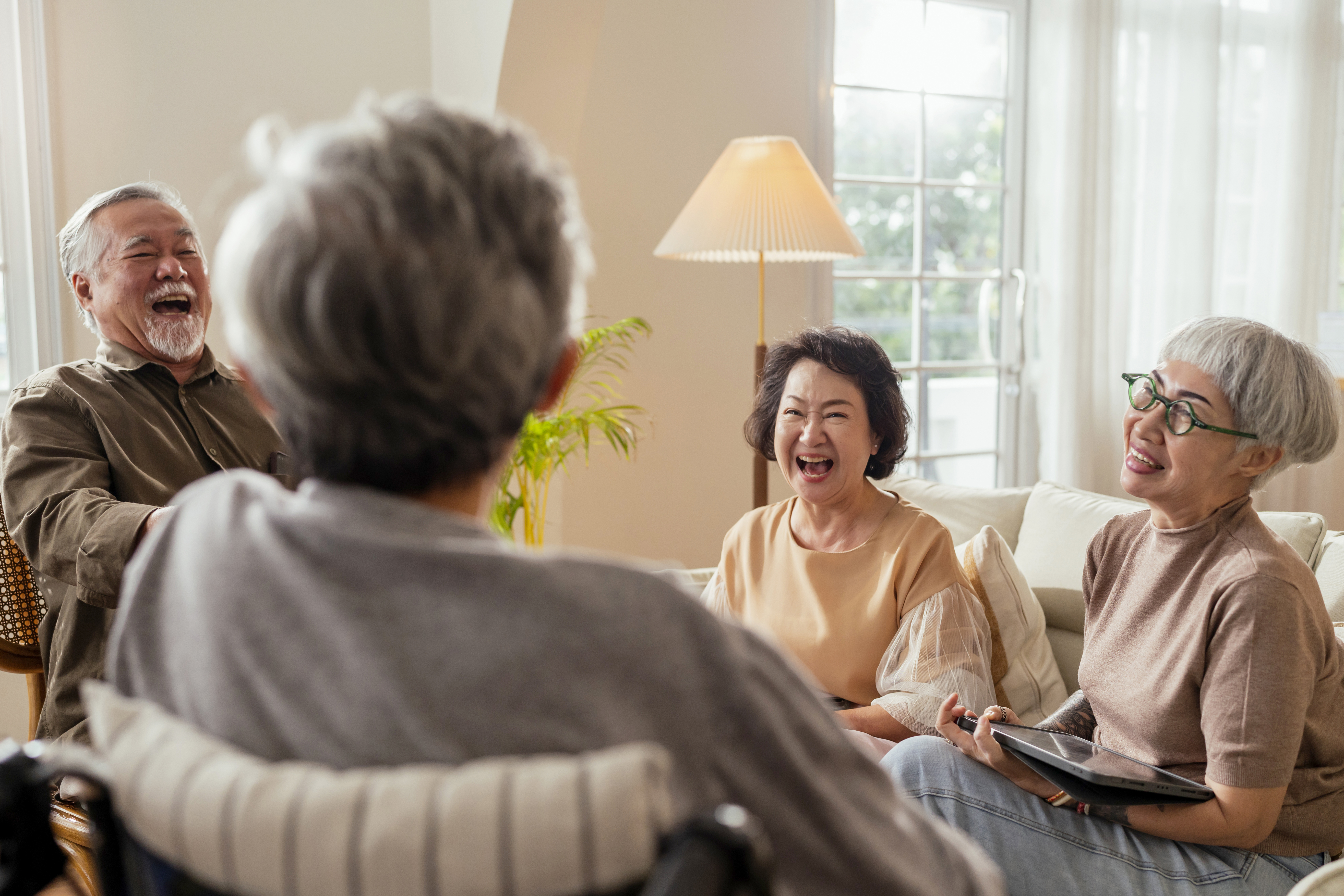The researched benefits of social connections on senior health
Robust social connections are important at any age, but seniors can be at particularly high risk for decreased sociability, due to life changes such as family moving further away, issues with vision and hearing—which have both been linked to social isolation—and loss of loved ones.
Seniors may also be unaware of the profound benefits that social connections can offer, in both physical and mental well-being. For most, it’s one of the pillars of health, and losing social connections can bring unexpected health challenges as a result. With that in mind, here’s a look at why these relationships are so beneficial.
Better cardiovascular function
.png?width=300&height=300&name=Sept%20Blog%20Social%20Content%20(11).png) Being social is heartwarming in a figurative sense, and it’s also a boon to heart health, literally. A study in the International Journal of Geriatric Psychiatry found that low levels of social connection represent a risk factor for cardiovascular disease. The Centers for Disease Control (CDC) and Prevention add that having poor social relationships is associated with a 29 percent increased risk of heart disease and a 32 percent increased risk of stroke.
Being social is heartwarming in a figurative sense, and it’s also a boon to heart health, literally. A study in the International Journal of Geriatric Psychiatry found that low levels of social connection represent a risk factor for cardiovascular disease. The Centers for Disease Control (CDC) and Prevention add that having poor social relationships is associated with a 29 percent increased risk of heart disease and a 32 percent increased risk of stroke.
The lack of social ties is one of the main reasons that isolation can raise the chances of premature death from all causes. It’s a risk that rivals smoking, obesity, and physical inactivity, the CDC reports.
Sharper cognitive function
Social isolation and fewer connections can have an impact on the brain as well as the heart. A study in the Journal of the American Geriatrics Society looking at about 5,000 older adults over a nine-year period assessed their level of social isolation and cognitive function and found those with more isolation tended to have higher dementia risk.
Those researchers added that this finding is in line with previous studies showing a link. For example, they point out that a meta-analysis of 19 studies showed that those with low social participation—for example, being around people but not interacting with them—had a 41 percent higher risk of dementia, and those with less frequent social contact had a 57 percent higher dementia risk.
Deeper sleep
Can seeing friends and family more often really have an effect on your sleep quality? That’s the finding in numerous studies, according to a research review in Geriatric Nursing.
Looking at 16 studies comprising nearly 24,000 older adults, researchers found that those with poor social connections and higher levels of loneliness were more likely to suffer from low sleep quality compared to participants with stronger connections. The researchers added that for seniors, sleep difficulties don’t just mean feeling low energy the next day—sleep problems can increase the risk of cardiovascular disease, dementia, depression, anxiety, and frailty.
Fewer symptoms of depression and anxiety
.png?width=300&height=300&name=Sept%20Blog%20Social%20Content%20(12).png) One of the most notable effects of better social connections is increased mental health and feelings of well-being. Research in Lancet Psychiatry suggests that loneliness is strongly linked to depression among older adults, which means that taking steps to increase social ties can help to reduce depressive symptoms.
One of the most notable effects of better social connections is increased mental health and feelings of well-being. Research in Lancet Psychiatry suggests that loneliness is strongly linked to depression among older adults, which means that taking steps to increase social ties can help to reduce depressive symptoms.
Researchers in this review found that after experiencing loneliness, the risk of depression persists for up to 12 years for some people. However, they add that loneliness can be changed or controlled, unlike other risk factors for depression such as genetics.
Stronger immunity
An immune system that isn’t functioning well can lead to a range of health challenges, including being more susceptible to colds and flu, taking longer to clear an infection, and even having a higher risk of developing serious autoimmune conditions and other diseases.
Although social connections can’t bolster the immune system on their own, increasing them can play an important role, according to the American Psychological Association. Chronic loneliness can cause mental and physical stress that negatively affects immune system efficiency.
Higher quality of life
In addition to all the health benefits above, there’s one more reason to maintain social connections: Chatting, laughing, and sharing with others just feels good. It’s a big part of enjoying life and feeling part of a community—no matter what your age.
If you or a loved one wants to bolster social connections, check out the National Council on Aging’s resources. The organization highlights campaigns, partners, and reports that can help with the next steps.
